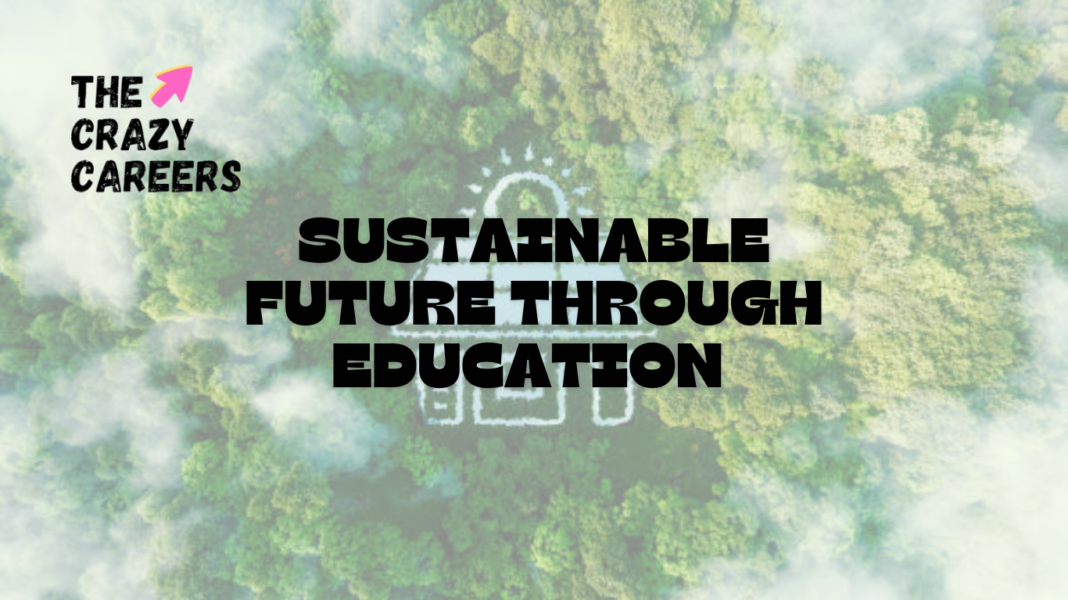As World Environment Day is celebrated on 5th June, it is imperative to reflect on the collective responsibility towards safeguarding the planet. Addressing climate change is crucial for building a sustainable future and ensuring that everyone has a decent place to live. One crucial component of this mission is often overlooked: the role of Sustainable Future through Education.
Anand Kumar Bolimera, National Director – Habitat for Humanity India, said, “As World Environment Day is celebrated on 5th June, it is imperative to reflect on the collective responsibility towards safeguarding the planet. Addressing climate change is crucial for building a sustainable future and ensuring that everyone has a decent place to live. Climate change exacerbates housing challenges, especially for vulnerable and marginalized communities. Rising sea levels, extreme weather events, and unpredictable climate patterns threaten homes and livelihoods, pushing many into a cycle of poverty and displacement.”
He added, “Housing plays an important role in mitigating the impacts of climate change. Prioritizing climate-resilient housing not only protects the environment but also empowers communities to thrive despite the challenges posed by climate change. Efforts to mitigate climate change must be coupled with promoting adaptation practices among communities.”
Education as a Catalyst for Climate Resilience
Climate change exacerbates housing challenges, especially for vulnerable and marginalized communities. Rising sea levels, extreme weather events, and unpredictable climate patterns threaten homes and livelihoods, pushing many into a cycle of poverty and displacement. Education can be a powerful tool in breaking this cycle. By integrating climate education into school curriculums and community programs, future generations can be equipped with the knowledge and skills needed to build and maintain climate-resilient homes.
Empowering Communities through Knowledge
Housing plays an important role in mitigating the impacts of climate change. Prioritizing climate-resilient housing not only protects the environment but also empowers communities to thrive despite the challenges posed by climate change. Education initiatives can teach communities about sustainable building practices, the importance of using environmentally friendly materials, and the benefits of clean energy alternatives. Such knowledge empowers individuals to take proactive steps in safeguarding their homes and environment.
Curriculum and Community Education Programs
Efforts to mitigate climate change must be coupled with promoting adaptation practices among communities. Schools and local organizations can develop programs that focus on sustainable living and building practices. Workshops, seminars, and hands-on training sessions can be conducted to teach families how to implement climate-resilient features in their homes. This could include the use of locally sourced materials, rainwater harvesting systems, solar energy, and other green technologies.
Inclusion and Outreach
Affordable housing remains one of the cornerstones for inclusive economic development, and efforts must be directed towards minimizing the environmental impact of homes by building with environmentally friendly materials and promoting clean energy alternatives. Education must also reach the unreached, marginalized, and people living in poor housing conditions. Tailored educational programs can ensure that these communities are not left behind and are equipped with the knowledge to adapt and thrive in a changing climate.
Building a Sustainable Future Together
Sustainability must be the underlying theme as India progresses towards becoming a developed economy by 2047 and emerging as a net-zero economy by 2070. At the same time, inclusion must be a focus to reach the unreached, marginalized, and people living in poor housing conditions. On this World Environment Day, governments, the private sector, civil society, individuals, and communities must come together to build a world where sustainable development is a reality for everyone.
Commitment to Action
Action, innovation, and collaboration are essential to create a greener, more resilient future for all. Integrating education into climate resilience strategies ensures that adequate, safe, and resilient shelter contributes to both the immediate security and long-term well-being of families. Education not only empowers individuals but also builds stronger, more informed communities capable of facing the challenges of climate change head-on.
Also Read | Career Scope in Environmental Science & Sustainability: Know from Experts
Education is the foundation upon which a sustainable and resilient future can be built. As World Environment Day is celebrated, investing in educational initiatives that foster climate resilience and sustainability is crucial, ensuring a Sustainable Future through Education.




